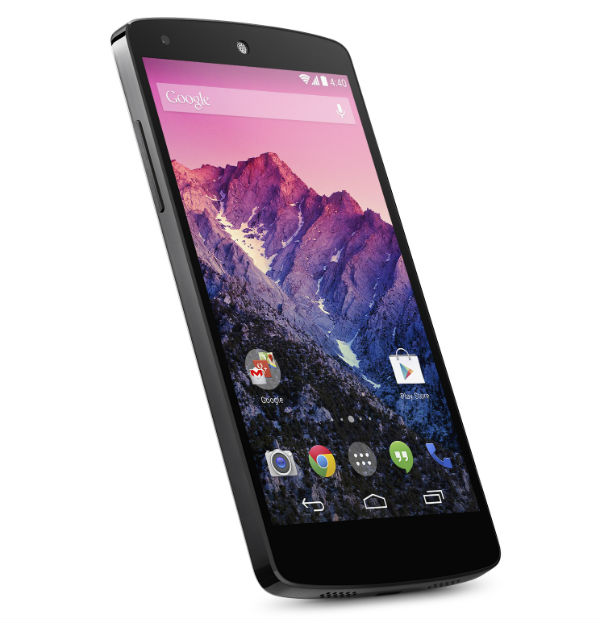Google’s Nexus 5 to Get Fastest Mobile Download Speeds Yet
Technology developed by cell network Sprint should see the Nexus 5 smartphone announced by Google today download data significantly faster than any smartphone currently on the market.

That’s thanks to a technology Sprint calls Spark, or tri-band. It can move data faster than any competing network by using three different chunks of radio spectrum owned by the company in parallel. At a press event in Burlingame, California, yesterday, Sprint CEO Dan Hesse presided over a demonstration in which a Spark link in a lab transferred data at one gigabit per second.
Hesse said that the first version of Spark will allow for only 60 megabit-per-second downloads, and that by the end of 2015 it should offer 150 megabits per second.
Spark uses the “4G” data transfer protocol LTE over all three of its links. Most networks have only a single piece of spectrum dedicated to LTE, and offer speeds in the range of 10 to 20 megabits per second.
The Nexus 5 will be available to buy from tomorrow, making it the first tri-band phone to hit the market. On November 8 it will be joined by a handful more, in the form of new versions of Samsung’s Galaxy S4 Mini and Galaxy Mega, and LG’s G2.
Spark is already deployed in New York, Los Angeles, Chicago, Tampa, and Miami, with more cities to get it over coming months, according to Sprint. Rolling out the technology involves upgrading cell phone towers with new equipment able to perform the triple-channel trick.
Keep Reading
Most Popular
Large language models can do jaw-dropping things. But nobody knows exactly why.
And that's a problem. Figuring it out is one of the biggest scientific puzzles of our time and a crucial step towards controlling more powerful future models.
How scientists traced a mysterious covid case back to six toilets
When wastewater surveillance turns into a hunt for a single infected individual, the ethics get tricky.
The problem with plug-in hybrids? Their drivers.
Plug-in hybrids are often sold as a transition to EVs, but new data from Europe shows we’re still underestimating the emissions they produce.
Stay connected
Get the latest updates from
MIT Technology Review
Discover special offers, top stories, upcoming events, and more.